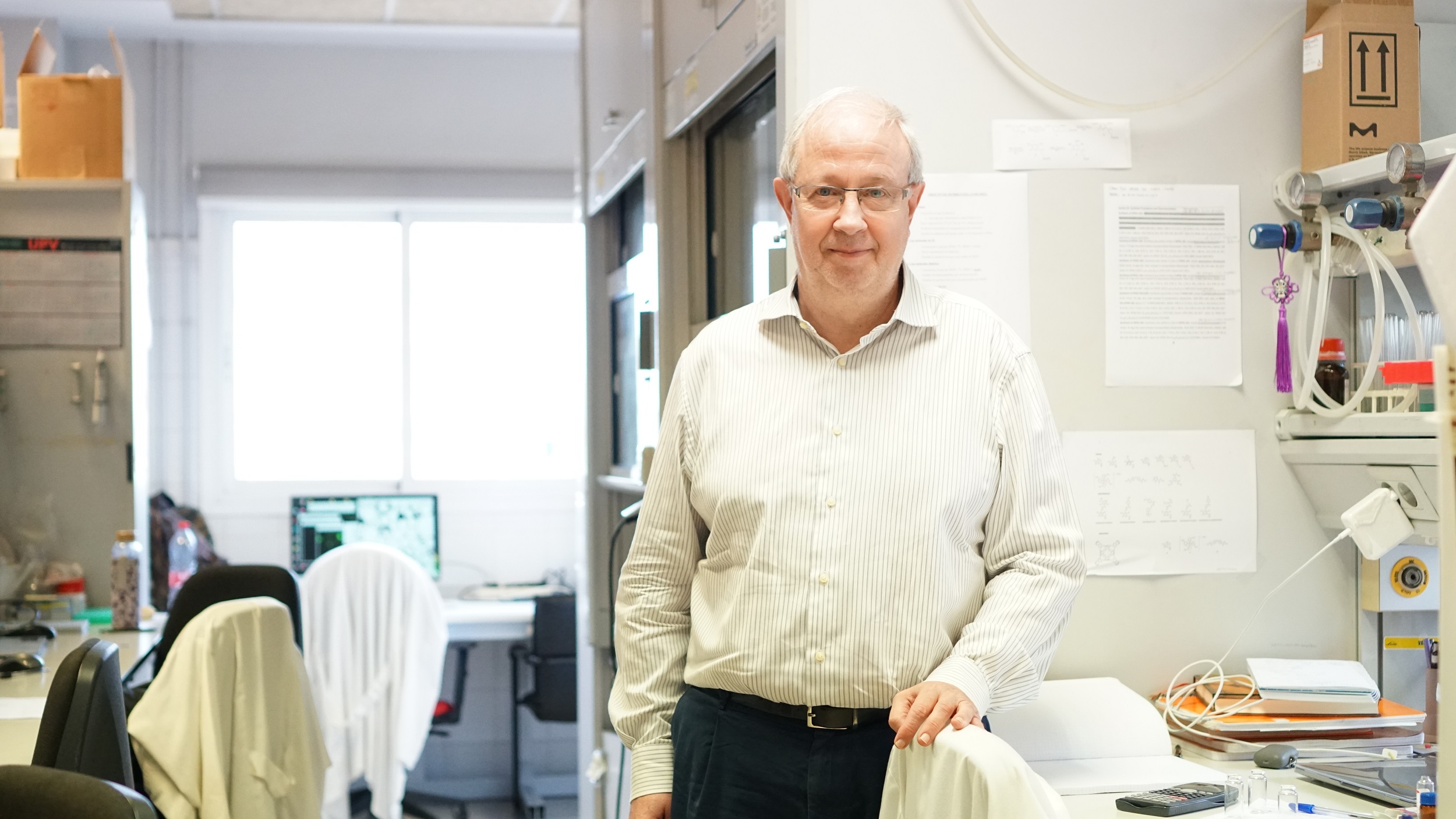Ramón Martínez Máñez, Scientific Director of NANBIOSIS U26 obtains an ERC Advanced Grant
Ramón Martínez Máñez, researcher at the Polytechnic University of Valencia (UPV) and scientific director of the Bioengineering, Biomaterials and Nanomedicine area of the CIBER (CIBER-BBN) and NANBIOSIS U26, has obtained an ERC Advanced Grant –the most prestigious grant from the European Research Council– endowed with 2.5 million euros for the development of the EDISON project (Engineered Particles for Chemical Communication).
This project focuses on the field of chemical or molecular communication. Its objective is the study, development and application of nanoparticles that are capable of communicating with each other and whose application would represent a revolution in the field of chemical research.
“Our goal is to advance the understanding of how abiotic micro/nanoparticles can communicate with the others and with living systems. In this context, one way to establish communication at the nanometric level is to mimic how nature communicates, that is, through the use of chemical messengers. If we are able to lay the foundations for communication between micro/nanoparticles and between them and cells, the future potential applications in the biomedical field, and in other fields such as the environment and industrial technology, are almost limitless”, highlights Ramón Martínez Máñez, who is currently deputy director of the Interuniversity Research Institute for Molecular Recognition and Technological Development (IDM) of the Universitat Politècnica València and the Universitat de València.
Unveiling the keys to the prevention and treatment of cancer
In the medical field, for example, these nanoparticles could help reveal the keys to the prevention and treatment of cancer, since they could act as nanotranslators that help connect cancer cells with cells of the immune system, regulating the interactions between them and , in general, to connect cells to each other that would not otherwise communicate. They could also be key in the development of new strategies to eliminate biofilms and resistant microorganisms, being able to detect the presence of chemical species used by bacteria to create the biofilm and inhibiting these signals.
The research proposed by EDISON will be carried out in the IDM, the CIBER-BBN and in the Mixed Units in which Ramón Martínez Máñez participates with the Príncipe Felipe Research Center and with the La Fe Hospital in Valencia.
5 years of work
The project, which began on October 1, will run for 5 years until September 30, 2027. In a first phase, the team from the IDM Institute of the Universitat Politècnica de València will create the basic components to study chemical communication; in the second, EDISON will focus on the development of systems capable of establishing communication between nanoparticles and living systems. Finally, the UPV researchers will work on the development of nanosystems that integrate stimulus-sensitive nanoparticles and electronics to create new hybrid communication structures.
“Every year hundreds of nano/microparticles are described but in practically all cases they are used as independent entities with no connection between them. The connection/communication between particles is the basis for developing more complex cooperative systems with new functionalities”, says Professor Martínez-Máñez, who will dedicate most of his time to the development of the EDISON project with the aim of laying the foundations for this new idea.
Obtaining this prestigious aid will allow the research group to focus on promoting a new form of communication at the nanoscale based on the use of chemical messengers that will facilitate the development of new applications at the nanometric scale beyond what is possible using information and communication technologies on the macroscale that we know today.









